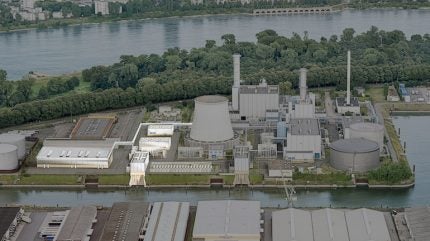
Dr Uwe Lauber, CEO of MAN Energy Solutions, and Andreas Feicht, CEO of RheinEnergie have signed the supply contract for Europe’s largest river-water heat pump at RheinEnergie’s Cologne-Niehl production site. The project is valued at €280 m.
At the signing, Feicht said: “Of itself, the plant would already be exemplary in terms of tapping the dormant energy-potential of Germany’s major rivers. But by choosing this location and the opportunity to combine it with facilities based on gas- and steam-turbine technology, we are creating an energy system of the future for Cologne’s centre that balances sustainability and climate protection with security of supply and affordability. After all, the different systems and energy sources complement each other perfectly.”
Feicht added, “We are decarbonising at the source of the heat, thus transforming the entire system behind it in one go. This is a great relief for tenants whose options for taking climate action themselves are limited. We are largely taking on this task for them.”
With a heat output of 150 MW, the system will be the largest fluvial heat pump in Europe and will supply around 50 000 households. The heat-pump solution from MAN Energy Solutions uses water from the Rhine as an energy source. The heat pump will raise the temperature of the water circulating in the system to 110°C, which meets the requirements of the Cologne network.
Lauber said: “The heating market in Germany is a sleeping giant. It is estimated that 39 million tons of CO2 can be saved by decarbonising district heating alone. Therefore, it is all the more important that there are bold pioneers … are taking the lead and acting. The Cologne heat pump is a flagship project for all of Germany and impressively demonstrates the contribution this technology can make to climate-friendly heat supply.”
Preparatory work is already underway on the construction site next to the Niehl harbour basin where water from the Rhine will be extracted to serve as the environmental energy source for the plant. According to the current planning status, the plant is expected to be operational by the end of 2027.






